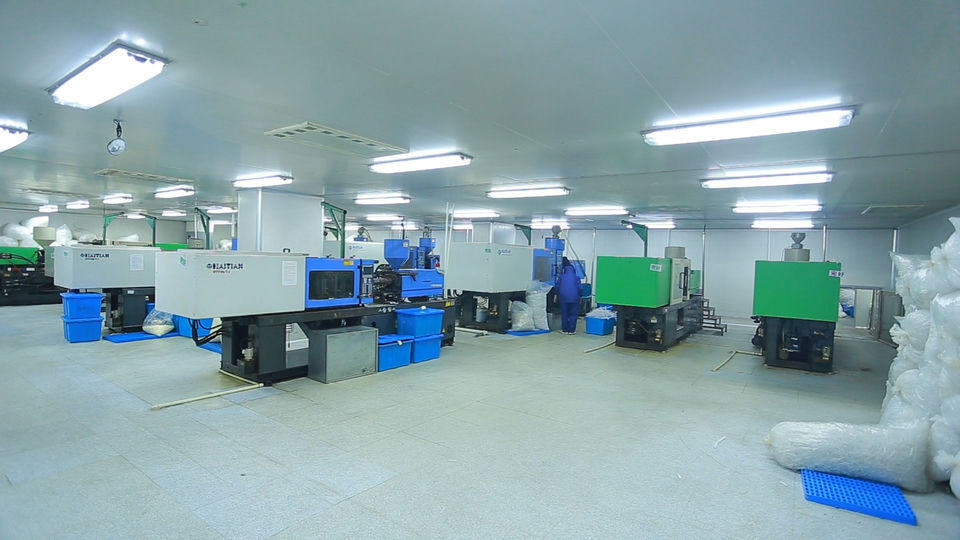The Science Behind Plastic Injection Molding: How It Shapes the Quality of Disposable Syringes
 Apr 10, 2023|
Apr 10, 2023| View:514
View:514
The plastic injection process plays a critical role in producing disposable syringes that are of high quality, safe to use, and precisely calibrated to deliver accurate doses of medication. In this post, we will explore the science, technology, and best practices behind the plastic injection process for disposable syringes, and how these factors shape the quality of the final product.
1. The Basics of Plastic Injection Molding
Plastic injection molding is a widely used manufacturing process for producing plastic parts that is used in a wide range of industries, including medical devices like disposable syringes. The process involves heating a plastic material to its melting point and injecting it into a mold to form the desired shape. The following are the main components of a plastic injection machine:
- Injection unit: where the plastic material is melted and injected into the mold cavity
- Clamping unit: where the mold is securely clamped together
- Mold: the cavity that is used to form the plastic part
- Cooling system: where the molten plastic is cooled and solidified
The plastic injection process for disposable syringes typically involves a number of additional steps, such as labeling, inspection, and packaging.
2. Quality Control Standards in Plastic Injection Molding
Quality control is a critical factor in the plastic injection process for disposable syringes, as any variation or defect in the process can result in poorly performing or unsafe devices. Key quality control standards and best practices in plastic injection molding for disposable syringes include:
- Good process control: maintaining a consistent and controlled process environment to produce consistently high-quality parts.
- Consistent performance: ensuring that machines and equipment operate consistently and that critical parameters like temperature, pressure, and speed are carefully monitored and maintained.
- Material control: ensuring that raw materials are of high quality and free from contamination, and that they are properly stored and handled.
- Traceability: having a system in place to trace each product back to the manufacturing process and relevant quality control data, should any issues arise.
- Compliance: adhering to global regulatory requirements and quality standards.
3. Innovations in Plastic Injection Molding
Recent advances in plastic injection molding technology are helping to improve the efficiency, quality, and sustainability of the process. Some of these advancements include:
- 3D printing: using 3D printing technology to create molds that are more complex and precise than traditional molds, resulting in improved product quality.
- Automation: using automated systems to control the injection molding process and reduce variability and waste.
- Artificial intelligence: using AI-powered quality control tools to detect defects and errors in real-time, reducing the need for manual inspection and increasing production efficiency.
4. Challenges in Plastic Injection Molding
While plastic injection molding for disposable syringes is a highly efficient and reliable process, there are some challenges and risks associated with it. These include:
- Equipment failure: breakdowns in equipment or machine components can lead to production delays, waste, and quality issues.
- Contamination: if the raw materials or equipment used to make disposable syringes are not properly cleaned and maintained, they can cause contamination that can affect the quality and safety of the final product.
- Environmental concerns: the production of disposable medical devices like syringes produces a significant amount of waste that can be harmful to the environment. Companies like Changzhou Health are committed to sustainable production practices that reduce waste and minimize their environmental impact.
5. Ensuring Quality and Safety in Plastic Injection Molding
Changzhou Health is committed to ensuring that the plastic injection molding process for disposable syringes meets global regulatory requirements and stringent safety and quality control standards. We achieve this by incorporating best practices, standardized processes, and quality control into every step of our manufacturing process. This includes:
- Material control: we carefully source and test all materials before using them in production, ensuring they are of the highest quality and free from contaminants.
- Process control: we closely monitor and control the injection molding process, ensuring consistent performance and high-quality output.
- Quality control: we have a rigorous quality control program in place that includes regular inspections, testing, and analysis of our products to ensure they meet regulatory requirements and quality standards.
- Compliance: we adhere to all global regulatory requirements for disposable medical devices, including CE and ISO13485 certification.
The plastic injection molding process is a crucial part of manufacturing disposable syringes that are safe and effective. By following best practices and embracing innovation, companies like Changzhou Health can continue to produce high-quality disposable syringes that help improve health outcomes for patients worldwide. Our commitment to quality control, sustainability, and regulatory compliance ensures that our products meet the highest standards of safety and performance.





